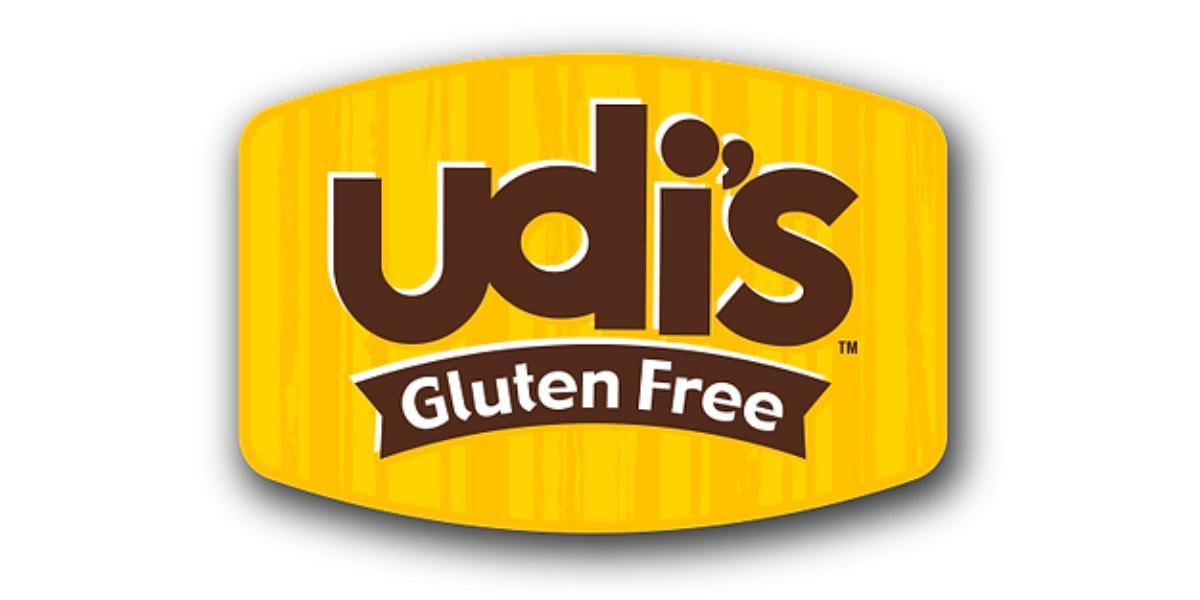Udi’s is a staple in the gluten-free community. In 2008, Udi Baron started producing gluten-free food with the help of a gluten-free baker. Today, the company makes gluten-free bagels, bread, cookies, granola, pizza crusts, and even frozen meals.
The company’s website is fairly lean, focusing more on selling products than on educating readers on how to safely maintain a gluten-free lifestyle. And that’s a fine approach to take, but it’s strange that Udi’s doesn’t say anything about how they avoid allergen cross-contact in their facilities. I don’t think we missed it, either. Using the company’s website search function, I looked for “allergen,” “cross-contact” “contamination,” and “cross-contamination,” but Udi’s tried selling me chocolate zucchini muffins as a result.
This post is informational only. Gluten-Free Grubbin’ will not receive compensation in any form for mentioning this brand or its products.
Udi’s Response on Allergen Cross-Contact
What we already knew from the packaging is that Udi’s products are certified gluten free and kosher. But we wanted to know exactly what steps they take to protect the consumer from gluten, so we emailed them to find out. Here is Udi’s email response:
Thank you for your contact regarding our UDI’S Bread.
Please note, we follow good manufacturing practices (GMPs) to reduce the risk of allergen cross-contact in non-allergenic containing foods.
We always segregate allergen and non-allergen ingredients in our facilities.We clean product lines thoroughly when changing from allergen-containing to non-allergen containing products
After cleaning, we conduct inspections to verify that it has been effective. Due to our diligence in controlling allergens in our manufacturing facilities, a “May Contains” statement will rarely be used. Should there be a situation where a particular product type or manufacturing line cannot meet the requirements for cleaning or segregation, we will use a “May Contains” statement on the label indicating that the product may contain low levels of an allergen.
We will not use a “May Contains” statement just because a product is made in a facility with Major allergens.Thanks again for taking the time to contact us.
CONAGRA
Safety Concerns
Udi’s response was disappointing. On the one hand, we love hearing that allergen and non-allergen ingredients are segregated. And we like knowing that product lines are thoroughly cleaned (although it would be better if those allergens weren’t at the facility at all), but which “allergen-containing” products are they even talking about?
At no point in this response did Udi’s mention gluten at all. “Allergens” is likely referring to the Big 8: milk, eggs, fish, crustacean shellfish, tree nuts, peanuts, wheat, and soya. So based on the email we received, are we to assume that Udi’s isn’t manufactured in a dedicated gluten-free facility?
GFCO Certification
Before you start banning Udi’s, understand that their packaging carries the Gluten-Free Certification Organization seal. But what does that even mean? It means that Udi’s products have to come in at or under 10 parts per million of gluten. And that’s good, especially because the FDA set 20 ppm as the standard (even though that’s way too high). Just know that some companies, such as Schar, aim for 5 ppm gluten.
What does all of this mean? Like with anything, just be careful when you’re trying a new product. What is safe for one person may make someone else sick. Plenty of people will have no problem eating Udi’s gluten-free products, but people who are very sensitive to gluten may have issues. But that’s the case with just about every pre-packaged gluten-free food, honestly.
Let us know in the comments below if you’ve ever had any gluten reactions after eating Udi’s foods.
Go get your grub on!








